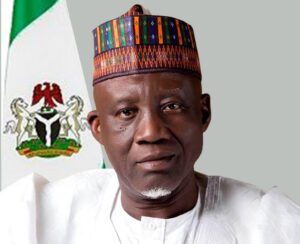Panel calls for new global framework for COVID-19 response
Some experts appointed by the World Health Organisation (WHO) say the global system for pandemic alert and response is “not fit for purpose,” emphasising the need for a new framework in the wake of COVID-19.
The experts, Independent Panel for Pandemic Preparedness and Response, in an interim report presented on Tuesday, said countries should use technology to inform people about the disease.
They found critical elements to be “slow, cumbersome and indecisive” in an era when information about new disease outbreaks was being transmitted faster than countries could formally report on them.
“When there is a potential health threat, countries and the WHO must further use the 21st century digital tools at their disposal to keep pace with news.
“They should keep pace with news that spread instantly on social media and infectious pathogens that spread rapidly through travel,” said Helen Clark, former Prime Minister of New Zealand and Co-Chair of the panel.
“Detection and alert may have been speedy by the standards of earlier novel pathogens, but viruses move in minutes and hours, rather than in days and weeks,” she said.
The panel was established to review lessons learned from international response to COVID-19, which first emerged in Wuhan, China, in Dec. 2019.
Nearly 94 million confirmed cases and more than two million deaths have been reported globally as of Tuesday.
The panel’s second progress report said countries were slow to respond to the novel coronavirus disease, noting that there were lost opportunities to apply basic public health measures at the earliest opportunity.
Although WHO declared on Jan. 30, 2020 that COVID-19 was a Public Health Emergency of International Concern (PHEIC), the panel found many countries took minimal action to prevent spread both within and beyond their borders.
“What is clear to the panel is that public health measures could have been applied more forcefully by local and national health authorities in China in January.
“It is also clear to the panel that there was evidence of cases in a number of countries by the end of Jan. 2020.
“Public health containment measures should have been implemented immediately in any country with a likely case. They were not,” they said.
The report also outlined critical shortcomings at each phase of response, including failure to prepare for a pandemic despite years of warning.
“The sheer toll of this epidemic is prima facie evidence that the world was not prepared for an infectious disease outbreak with global pandemic potential, despite the numerous warnings issued that such an event was probable,” it said.
Pandemic response has also deepened inequalities, according to the panel, with inequitable access to COVID-19 vaccines a glaring example as rollout had favoured wealthy nations.
“A world where high-income countries receive universal coverage while low-income countries are expected to accept only 20 per cent in the foreseeable future is on the wrong footing – both for justice and for pandemic control.
“This failure must be remedied,” said the panel’s Co -Chair, Ellen Johnson Sirleaf, former President of Liberia.
The report further highlighted the need to strengthen the UN’s health agency.
“The WHO is expected to validate reports of disease outbreaks for their pandemic potential and deploy support and containment resources, but its powers and funding to carry out its functions are limited. This is a question of resources, tools, access and authority,” Sirleaf said.
Countries were also urged to ensure testing, contact tracing and other public health measures to reduce virus spread to save lives, particularly as more infectious virus variants emerged.
The independent panel began its review last September and would present a report to the World Health Assembly, the decision-making body of WHO in May.




